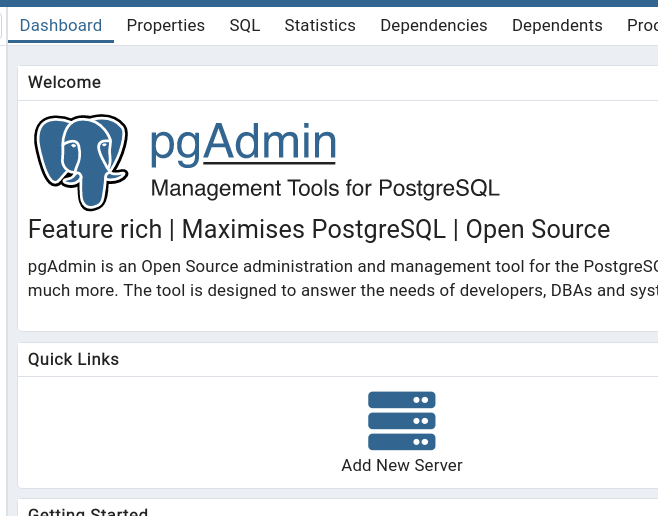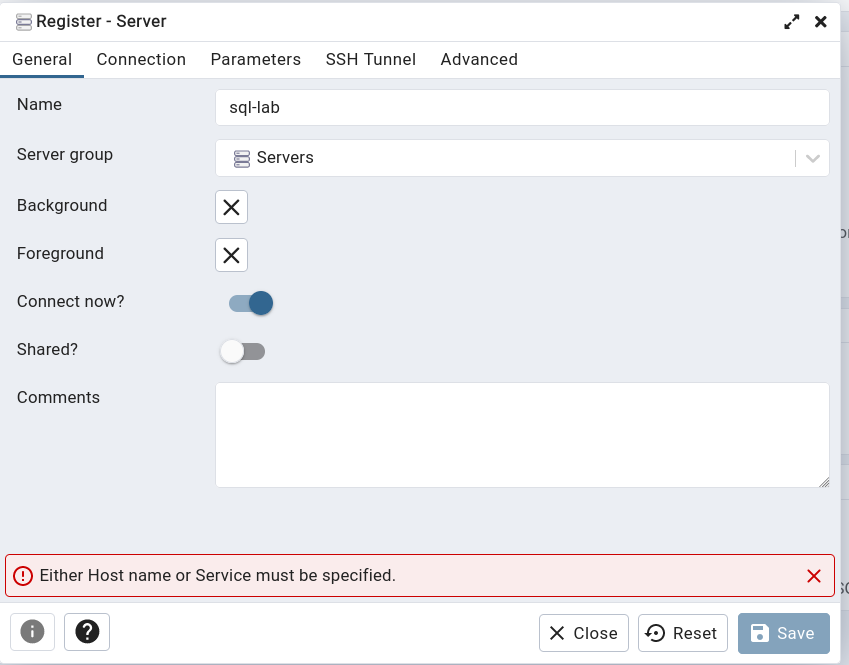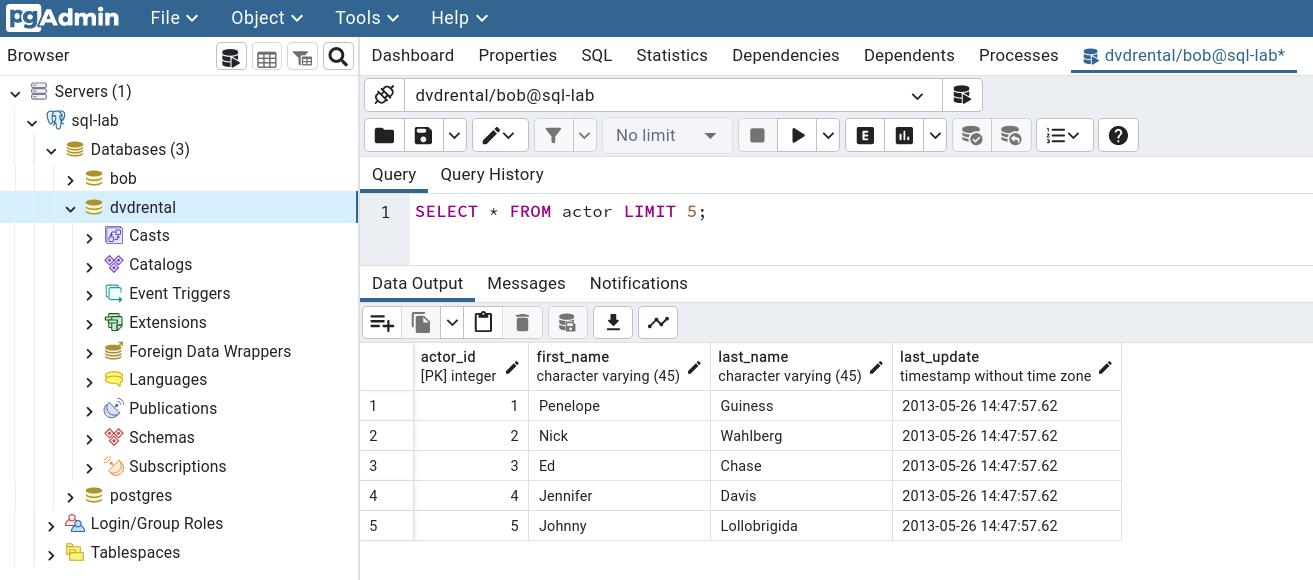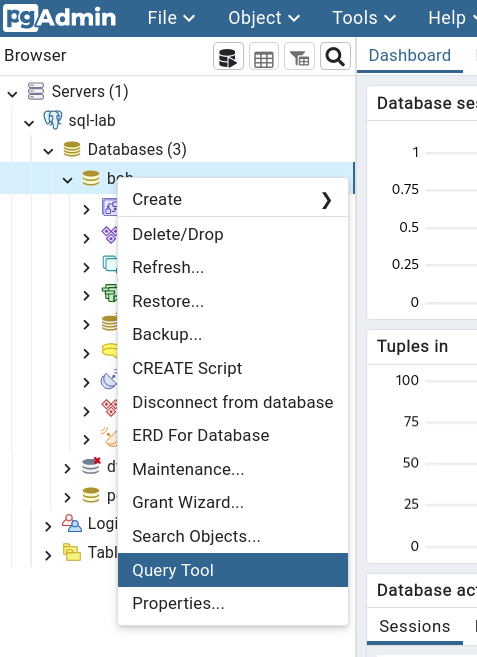pgAdmin
Contents
pgAdmin#
pgAdmin is a very popular GUI for PostgreSQL administration.
Logging In#
Once the Docker services (postgres and pgadmin) have started, we can point our browser to http://localhost:8080 and log in, using the username and password we set in our compose-postgres.yml file:

Creating a Server#
First thing we have to do once we’ve logged in, it’s to create a server, which we can do from the dashboard:

We have to choose a name for our server (whatever we want):

And also specify the details for our connection, i.e.:
Host name, in this case the name of the service in our Docker compose file.
Maintenance database, we can choose the default,
postgres.Username, also in the Docker compose file.
Password, ditto.

Running SQL Queries#
Even though we’ll be running most of our SQL within Jupyter notebooks, we could also use pgAdmin for that. We just have to right click on any existing database, and select the query tool:

That would open a window like in the image below. We can just write our SQL queries in the window, and run them by pressing F5.

All the queries we run are saved into a Query History, in case we want to use them again.
